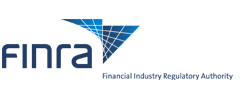
New National Survey Shows Widespread Anxiety Among American Investors
Washington, DC—A new national survey shows American investors have significant and widespread anxiety about the security of their investments, particularly as it relates to their retirement savings. More investors report that they are anxious about losing money on their investments (78 percent) and saving for retirement (73 percent) than are anxious about losing their job (50 percent), buying a house (42 percent) or paying for college (35 percent). Only serious health problems were ranked above investment concerns in the survey.
The survey was commissioned by the Financial Industry Regulatory Authority (FINRA).
FINRA is the new regulatory body created in July 2007 by the consolidation of NASD and New York Stock Exchange Member Regulation. FINRA regulates nearly 5,100 brokerage firms and more than 665,000 registered securities representatives. One important mission of FINRA's is to protect investors through education. To that end, FINRA created the FINRA Investor Education Foundation, the largest foundation of its kind supporting innovative research and educational projects to help investors better understand the markets and the basic principles of saving and investing.
"While it is no surprise that investors have a high level of anxiety about saving for their future and avoiding becoming the victims of fraud, this survey drives home the point that everyone must do more to help people to become better informed about investing," said Mary Schapiro, CEO, FINRA. "Regulators, the industry and investors must make investor education a priority."
Although retirement ranks as the most important saving and investment milestone for a majority of investors (72 percent), less than half (47 percent) are highly confident they are saving and investing enough for their retirement. As they age, most investors review and change the risk level of their investments and more than half say they are highly confident that the investment information available to them is objective and unbiased. But that sense of confidence may be a false one -- since nearly sixty percent (59 percent) have made an investment that resulted in a loss of some or all of the money they invested.
Additional survey findings show that the majority of investors are anxious about being defrauded (67 percent). Although one in 12 investors reported losing money in an investment because they were misled or defrauded, only a small number of these investors reported the fraudulent activities. In fact, the survey shows that investors may unwittingly be leaving themselves vulnerable to investment fraud. Fifty-six percent reported taking steps to find out about the background of their investment professionals, most of which were informal or unsophisticated steps, like asking friends or family for investment advice.
Young investors, in particular, may be engaging in risky investing behavior. They are the most likely to receive investing information from friends or acquaintances and to invest in unsolicited investment offers.
Investors who previously had made use of FINRA investor education resources were less anxious overall and better positioned than the general investing public to make sound investment decisions. According to the survey, these informed investors are more likely to diversify their investments, check the background of their investment professional and make use of reliable sources of information when doing so.
FINRA recommends that all investors take the following steps to help them become more informed and less anxious:
- Verify the background of brokers and brokerage firms. FINRA's BrokerCheck, available at www.finra.org/brokercheck, features professional background information on more than 663,000 current and former registered brokers and more than 5,100 FINRA-regulated brokerage firms. BrokerCheck includes information on broker employment history, licensing status, criminal events, regulatory actions and complaints.
- Visit the Smart 401(k) Investing section of the FINRA Web site at www.finra.org/InvestorInformation/SmartInvesting. With retirement as a key point of anxiety for many investors, FINRA's Smart 401(k) Investing takes investors through the process of enrolling and managing a 401(k) account, and answers questions about everything from eligibility to rollovers, from vesting to hardship withdrawals.
- Check out investor information from reliable sources, including FINRA (www.finra.org), The Securities and Exchange Commission (www.sec.gov) and the North American Securities Administrators Association (www.nasaa.org).
FINRA, the Financial Industry Regulatory Authority, is the largest non-governmental regulator for all securities firms doing business in the United States. Created in 2007 through the consolidation of NASD and NYSE Member Regulation, FINRA is dedicated to investor protection and market integrity through effective and efficient regulation and complementary compliance and technology-based services. FINRA offers a broad range of tools and programs to help people better understand investing and know how to protect themselves along the way — including developing and publishing Investor Alerts, brochures and online resource guides on such critical topics as mutual fund class shares and 401(k) and college savings plans. FINRA distributes this information through its Web site, printed materials and Investor Forums.
FINRA touches virtually every aspect of the securities business—from registering and educating all industry participants to examining securities firms; writing and enforcing rules and the federal securities laws; informing and educating the investing public; providing trade reporting and other industry utilities; and administering the largest dispute resolution forum for investors and registered firms. For more information, please visit our Web site at www.finra.org.
